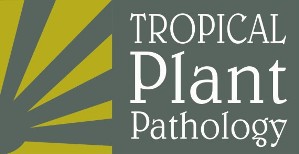This study aimed to investigate the reaction of unripe and ripe fruits of Capsicum spp. accessions to Colletotrichum gloeosporioides during the pre- and post-harvest periods, and to identify sources of resistance for use in plant breeding programs. Thirty-seven Capsicum spp. accessions of the Universidade Estadual do Norte Fluminense Darcy Ribeiro were evaluated. They were cultivated in a greenhouse and arranged in a completely randomized design with five replications. Twenty fruits from each accession were inoculated at two stages (unripe and ripe) in two different environments (fruits inoculated in the plant and detached fruit inoculated under laboratory conditions). The symptoms were assessed every 24 hours between the 1st and 8th days after inoculation. There were highly significant differences in the values of the area under the disease progress curve and in severity, considering all sources of individual variation and their interactions. Values of low and moderate correlation were observed for inoculation of unripe and ripe fruit in both environments. These results indicate the existence of distinct genes responsible for resistance at different stages of fruit development. Complete lack of symptoms was registered only for accessions UENF 1718 and UENF 1797 (C. baccatum var. pendulum).
Colletotrichum gloeosporioides; chili pepper; plant breeding; plant disease




